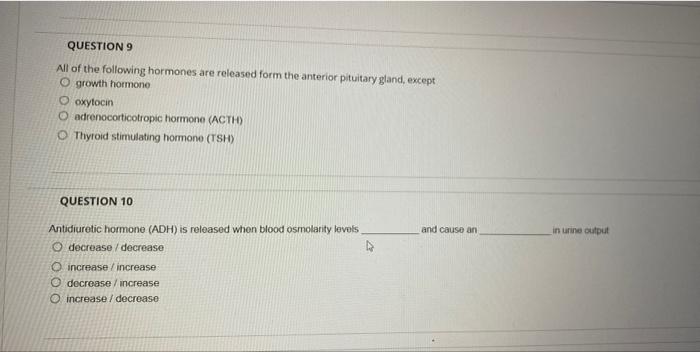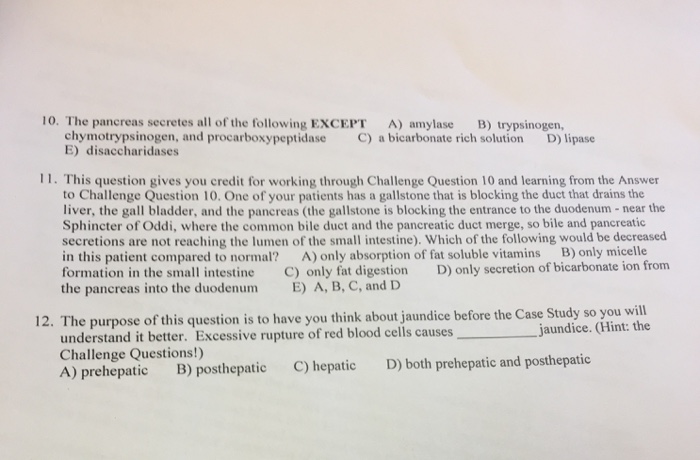The prostate secretes all of the following except: a crucial question that unlocks the mysteries of male reproductive health. Embark on a journey of discovery as we delve into the intricacies of the prostate gland, its secretions, and their profound impact on male fertility and overall well-being.
Prostatic fluid, a complex and essential component of semen, plays a vital role in the male reproductive system. Understanding its composition and function is paramount to comprehending the intricate mechanisms that govern human reproduction.
Prostate Gland Anatomy and Function

The prostate gland is a small, walnut-sized organ located just below the bladder in men. It surrounds the urethra, the tube that carries urine and semen out of the body. The prostate gland produces fluid that makes up part of semen, the fluid that nourishes and transports sperm.
Role in the Male Reproductive System
- Produces prostatic fluid, a component of semen
- Helps to neutralize the acidity of the vagina, creating a more favorable environment for sperm survival
- Provides nutrients and energy to sperm
- Helps to propel semen during ejaculation
Prostate Secretions
Prostatic fluid is a milky, slightly alkaline fluid that makes up about 20-30% of semen. It contains a variety of components, including:
- Citric acid:Neutralizes the acidity of the vagina, creating a more favorable environment for sperm survival
- Zinc:Essential for sperm motility and fertility
- Enzymes:Help to break down proteins in semen, facilitating sperm movement
- Prostaglandins:Stimulate uterine contractions, helping to propel sperm towards the fallopian tubes
Importance in Male Fertility
Prostatic fluid plays a crucial role in male fertility. It provides a favorable environment for sperm survival and transport, and its components contribute to sperm motility and the ability to fertilize an egg.
Prostate-Specific Antigen (PSA): The Prostate Secretes All Of The Following Except

Prostate-specific antigen (PSA) is a protein produced by the prostate gland. It is found in small amounts in the blood of healthy men, but elevated levels may indicate prostate disease, including prostate cancer.
Role in Prostate Health
PSA helps to liquefy semen and may play a role in sperm motility. However, elevated PSA levels can be a sign of:
- Prostate cancer
- Benign prostatic hyperplasia (BPH)
- Prostatitis (inflammation of the prostate gland)
PSA Testing
PSA testing is a blood test used to screen for prostate cancer. However, it is not a perfect test and has limitations, including:
- False positives:Elevated PSA levels can occur in men without prostate cancer
- False negatives:Some men with prostate cancer may have normal PSA levels
- Overdiagnosis:PSA testing can lead to the diagnosis and treatment of prostate cancers that would not have caused any symptoms or harm if left untreated
Benign Prostatic Hyperplasia (BPH)

Benign prostatic hyperplasia (BPH) is a non-cancerous enlargement of the prostate gland. It is a common condition in older men and can cause urinary problems, such as:
- Difficulty starting urination
- Weak or interrupted urine stream
- Frequent urination, especially at night
- Feeling that the bladder is not fully emptied after urination
Treatment Options
Treatment options for BPH include:
- Medications:Alpha-blockers and 5-alpha-reductase inhibitors can help to relax the prostate muscles and reduce the size of the prostate
- Surgery:Transurethral resection of the prostate (TURP) and laser prostatectomy are surgical procedures that can remove excess prostate tissue
- Minimally invasive therapies:These procedures use heat, steam, or microwaves to destroy prostate tissue
Potential Complications
If left untreated, BPH can lead to complications, such as:
- Urinary tract infections (UTIs)
- Kidney damage
- Bladder stones
Prostate Cancer

Prostate cancer is the most common cancer among men in the United States. It is a slow-growing cancer that often does not cause symptoms in its early stages.
Risk Factors, The prostate secretes all of the following except
- Age (over 50)
- Family history of prostate cancer
- African American race
- Obesity
- Diet high in saturated fat and red meat
Symptoms
As prostate cancer progresses, it can cause symptoms, such as:
- Difficulty starting urination
- Weak or interrupted urine stream
- Frequent urination, especially at night
- Feeling that the bladder is not fully emptied after urination
- Blood in the urine or semen
- Pain in the bones, back, or pelvis
Treatment Options
Treatment options for prostate cancer depend on the stage and grade of the cancer. Options include:
- Surgery:Radical prostatectomy is the surgical removal of the prostate gland
- Radiation therapy:External beam radiation therapy and brachytherapy are used to deliver radiation to the prostate gland
- Hormone therapy:Androgen deprivation therapy is used to reduce the levels of testosterone in the body, which can slow the growth of prostate cancer
- Chemotherapy:Chemotherapy drugs are used to kill cancer cells
Questions Often Asked
What is the function of prostatic fluid?
Prostatic fluid nourishes and protects sperm, providing a suitable environment for their survival and motility.
What is the role of PSA in prostate health?
PSA is a protein produced by the prostate gland. Elevated PSA levels can indicate prostate enlargement or cancer, making it a valuable screening tool.
What are the symptoms of BPH?
BPH can cause urinary frequency, urgency, hesitancy, and a weak urine stream.